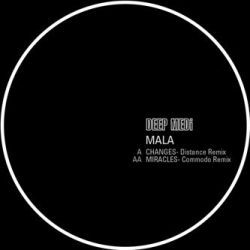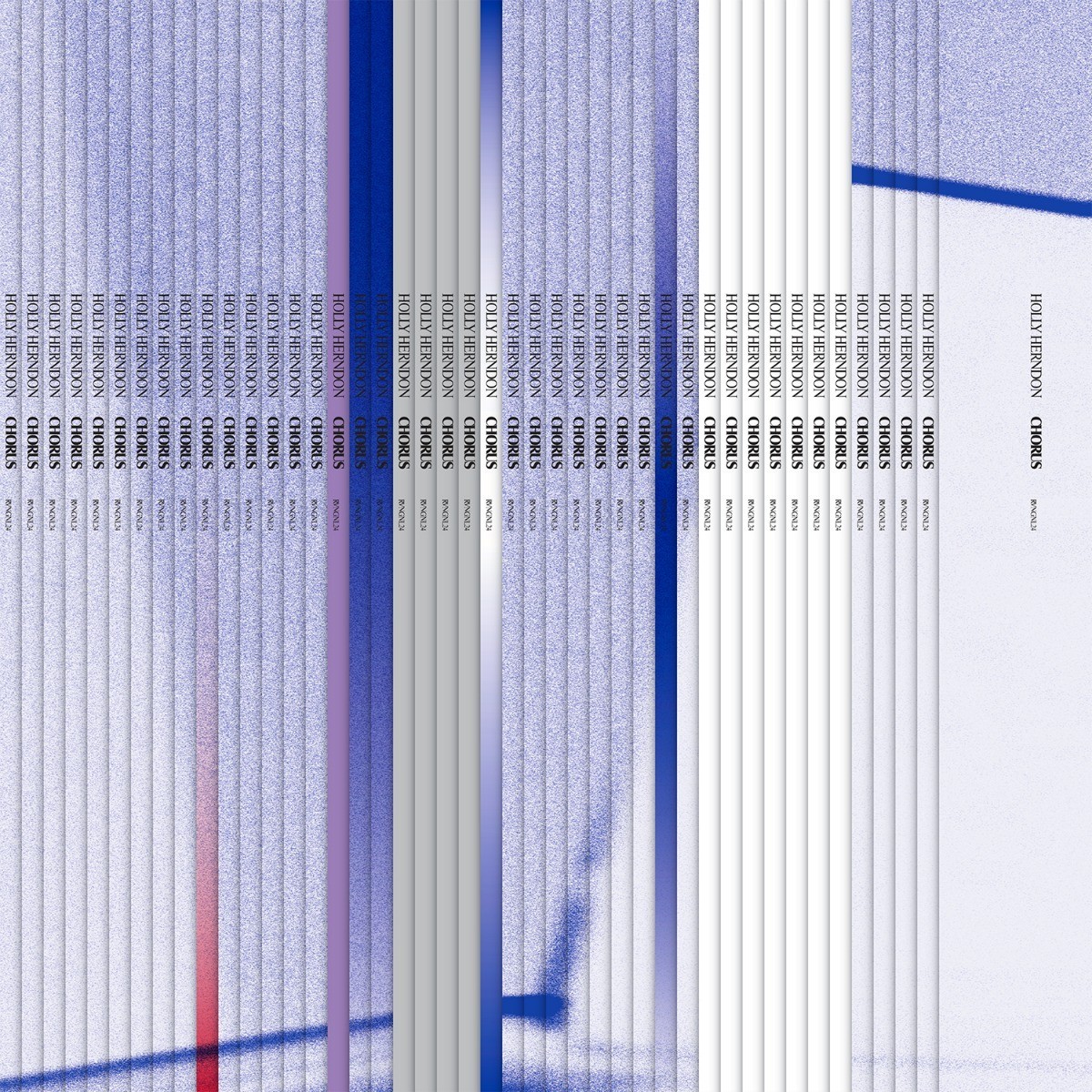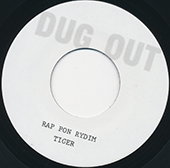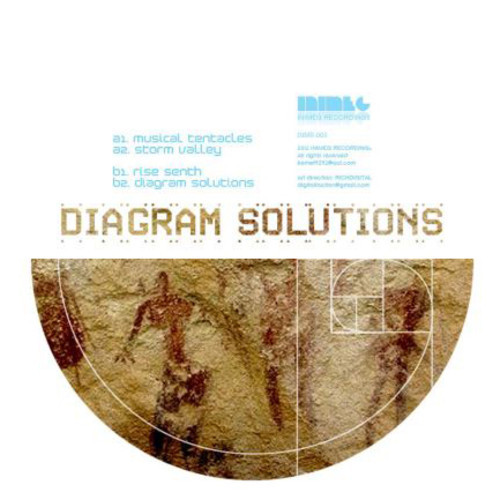Perhaps shamefully for a dance music columnist to admit, I haven’t been out raving for over a month. If there was more than a hint of techno-fatigue underpinning my year-end piece on 2013’s club music, the last few weeks have offered a recovery period of withdrawal from the club.
Instead the holiday was dominated by rinsing Mala’s back catalogue, in homage to his releasing one of the finest dubs in his arsenal, ‘2 Much Chat’. It might well be sold out everywhere by this point, but if you can manage to snag a copy it is, it almost goes without saying, well worth your while. Just as much as older Mala classics like ‘Learn’ and ‘Bury Da Bwoy’, the track epitomises the myriad qualities that make his music so unique. Crushing psychological weight squares up to playful, ravey humour (the MC’s jubilant exhortations to "put ya lighters up!" are looped into a tortured war cry that slowly burns into the music’s fabric), while flailing dancefloor hype exists even amid the pleasantly dissociative sensation of being squished beneath a looming mass of sub-bass.
Mala’s music is remarkable in that it embodies and reconciles all of those seemingly contradictory traits at once, demanding that they coexist rather than delineating them, a tough balancing act to pull off and one that’s still comparatively uncommon in dance music. It demands more of listeners and clubbers, but it ultimately offers more in return too, evidenced by how even his eldest tracks – nearly a decade old at this point – even now continue to reveal new aspects of themselves with subsequent listens.
With that in mind, does it matter that ‘2 Much Chat’ is an ‘old’ track, one that’s been a fixture in Mala sets for several years now? On the contrary, it feels vital; a dose of slowness and mindfulness at a time when the pace at which the dance music community moves frequently feels close to unsustainable. Mala’s spoken in interviews of wishing to capture that particular pleasure of only having known a track from hearing it on a dancefloor, and having spent years wondering what it was or trying to track it down, before finally coming across it again. He definitely does, to which everyone who lost their shit when ‘Stand Against War’ finally emerged on DMZ at the end of 2012 can attest.
But in addition, that deliberately gradual release schedule – a trickle of tracks from what must be a colossal catalogue of unreleased material – carries even more weight now, given that many critics, fans and listeners have long since declared dubstep a functionally inert form, co-opted into a grotesque parody of itself in the mainstream, and doomed forever to repeat past glories at underground level. There’s an element of truth to that, and as with contemporary drum & bass it’s fair to question whether the genre as a whole could ever be as vital and inquisitive as it was in its infancy. But as with John Doran’s recent article about Rude FM, and other recent pieces highlighting the persistence of the drum & bass community largely away from the media gaze, releases like ‘2 Much Chat’ are reminders that the speed of cultural turnover can swiftly mask what came just before. (That applies right down to the day-to-day trickle of new music, too – even the most low-key of dance 12"s will often now arrive following a ridiculously extended pre-release lead time, to the point that new releases often feel worn out before they’ve even hit the shelves.)
Mala – ‘2 Much Chat’
All that said, what places Mala so far above much of the current deeper dubstep community is that his work rarely stops searching for new avenues along which to travel, never taking the path of least resistance. In contrast it’s instantly possible to hear, in plenty of other producers’ cases, when a tune is being produced to template: kick goes here, snare goes there, bang, here’s a dubstep track. The difference, in the end, often comes down to intent. As with much drum & bass, for a current dubstep producer there’s a well-established formula to hew to in order for your track to be played on the right dancefloors, by the right DJs. Mala, keeping his dubs close to his chest and continuing to operate in the same way he has for years, clearly has other priorities and reasons for his music making, and they continue to burn bright in his work.
So I’ve opted for this month’s edition of Hyperspecific to serve a double function. Firstly, to highlight as ever some new electronic music worth your time. But also to look back at a few releases from the latter section of 2013 that I’ve spent a few months digesting, in the spirit of not allowing good things to fall by the wayside simply for novelty’s sake.
Mala – ‘Changes (Distance Remix)’/’Miracles (Commodo Remix)’
(DEEP MEDi)
Gantz & El Mahdy Jr – ‘Spry Sinister’/’Rising’
(DEEP MEDi)

Barring a relatively small cluster of newer producers, Commodo among them, dubstep’s horizons have become narrower over its lifespan so far – a marked contrast to grime, which along with its various offshoots is in pretty great shape right now. Much of that is simply due to exodus; during the time when the genre’s wompy commercial forms were making waves in the clubbing mainstream, many of the most adventurous producers working at 140bpm opted to shift elsewhere. For the most part they brought their own idiosyncrasies along with them, which was great news for techno-tempo music, less so for dubstep-tempo music, whose rhythmic framework once again mostly lapsed back into a standardised halfstep plod. However, there’s still the occasional bit of music that emerges from the scene that’s good enough to demand you sit up and take notice – much of it through Mala’s DEEP MEDi label.
The label’s latest release, from Turkish producer Gantz, is one of those rare treats. ‘Spry Sinister’ is a fantastically odd creature, a veritable Frankenstein’s monster of a tune whose component pieces appear to have been stitched together in the wrong order, turning the halfstep lurch into a trembling, dead-eyed zombie walk. Drums rumble around the mix like boulders careering down a canyon, flattening everything in their path, while clipped dub siren bleeps ring out into the empty space above. B-side ‘Rising’ is even better. It’s a collaboration with Algeria-born, Turkey-based producer El Mahdy Jr, whose album The Spirit Of Fucked-Up Places was among last year’s hidden gems, and pairs a similarly sickened attitude to rhythm with hazy recordings of Turkish folk fiddle and vocals. As on El Mahdy Jr’s solo music that collage approach is supremely effective, underpinning a track whose tug-of-war between moods recalls the work of Mala himself.
Holly Herndon – Chorus
(RVNG Intl)

Herndon’s music involves the intermeshing of her own voice with the ‘voice’ of her laptop, both through digitally processing her own vocals and, in the live arena at least, holding a mic to her laptop’s casing to capture and process live the hum and buzz of its inner workings. She’s spoken in interviews about wishing to draw attention to the intimate role laptops and digital technology now play in our lives, and address the increasingly permeable boundaries between physical and digital worlds; this new EP’s unsettled mood equally reflects upon the serious questions raised in the past year about loss of privacy and freedom in a heavily surveilled online environment. Bearing all that in mind, the video for ‘Chorus’ is well worth watching, as it’s a neat visual representation of those ideas: its filmed images of Herndon’s computer and desk are transformed into pixellated vistas that clip round the edges like coding glitches in a turn-of-the-millennium videogame, blurring the lines between reality and fiction.
Levantis – Believe
(The Trilogy Tapes)
Rezzett – Rezzett
(The Trilogy Tapes)
Will Bankhead’s label The Trilogy Tapes upped the ante in 2013, pretty much doubling its discography over the course of a single year. That’s a run of form it appears to be carrying through to 2014 too, with new 12"s from Theo Parrish, Ondo Fudd (an alias of Call Super), Willie Burns and Minor Science (aka music journalist and Quietus scribe Angus Finlayson, making an impressive debut) all either already released or soon to come. Despite that prolific nature, though, it’s another good example of a label whose operations actively encourage slow and considered engagement. It might not initially appear so on the surface – with its scratchy, frayed takes on house and techno, the TTT sound is pretty much the definition of hot right now – but most of its releases to date actually feel less like DJ-ready packages for today’s dancefloors than weird, self-contained little units in their own right. Which ensures that, unlike any number of pricey 12"s of jammed-out hardware techno finding their way onto the market, only coming to them (or revisiting) six months down the line doesn’t feel like arriving after the fact.
Levantis’ Believe, for example, doesn’t feel concerned with fitting anywhere. Each of its four tracks is an exquisite, obsessive examination of a single motif or mood, with melodies burbling their way to the surface through clouds of hiss and murky fluid; opening track and highlight ‘Music Hall’ is at once monolithic and fragile, as if its tremulous voices might at any moment sink forever beneath the waves. The identity of its maker isn’t revealed, but it’s not hard to discern who might be behind these tracks. They display certain particular idiosyncrasies that make me suspect that Levantis is the work of one particular well-known producer playing a new role, but you’ll have to listen to decide for yourself. I’m only now starting to dig into most of the TTT catalogue from 2013, and Rezzett’s self-titled debut is proving similarly rewarding, a clutch of thoroughly grubby, etched hunks of noise-house which feel like they’re blowing your speakers as they play.
Tiger – ‘Rap Pon Rydim’
(Dug Out)

This must have sounded colossal booming from Jamaican systems at the time it emerged, but it’s also interesting to consider it in light of other music made much, much later, be that jungle’s techno/ragga gene splicing, artists like Kevin Martin – his recent Acid Ragga series of 7"s, for example – or even the various mutant strains of sound system techno emerging right now from the likes of Hessle Audio, Logos & Mumdance and Livity Sound. Ahead of its time, but not in a museum piece way, and all the more refreshing for that.
Joey Anderson – Diagram Solutions
(Inimeg)
Joey Anderson – Act Of Speech
(Annunaki Cartel)

Like close friend DJ Qu, Anderson was formerly a professional house dancer, and his highly stylised and expressive dance moves hook into and amplify the tiny subtleties within what otherwise seem like repetitive, essentially unchanging grooves. Those exact same qualities are mimicked in his tracks, to the extent that you can imagine Anderson’s writing process is continually tweaked with reference to the floor – they’re generally composed of a bare minimum of building materials, a flicker or two of melody coursing through barebones drum machine patterns and bass booms as indistinct yet forceful as a sandstorm. These jigsaw pieces are set into action and guided carefully around one another across extended runtimes. They forsake overt narrative development, instead often seeming to exist in near-stasis.

Anderson’s hardly unique in these characteristics. The music of DJ Qu displays similar traits, as do both Chicago’s Hieroglyphic Being and Detroit resident Omar-S’s more cosmic flights of fancy. Outside of house and techno, meanwhile, Shackleton is another example of an artist willing to follow their grooves down labyrinthine wormholes in order to open up power to the floor. But as with those artists, Anderson’s music is both a counter to genre dance tracks that instruct you precisely how to react and when (in emotionally manipulative Hollywood soundtrack-style), and a reminder that genres themselves are never fixed entities, and are able to give rise to artists with sounds distinct enough to feel essentially sui generis. His forthcoming debut album on Dekmantel, due in the first half of this year, should be quite special.
‘Rumble On The Dancefloor’, from the Act Of Speech EPL-Vis 1990 Presents Dance System – Dance System EP
(Clone Jack 4 Daze)

His new 12" for Clone’s self-explanatorily titled Jack 4 Daze imprint follows on from the no frills chugging house of his Circuits EP from around that same time last year, and under the new moniker Dance System he’s streamlined that aesthetic still further – there’s little to the Dance System EP but bone, sinew, and the occasional gonzoid two-note melodic motif to hold the attention. These four tracks, which hark especially to the unbroken momentum of ghetto house, are purpose built for the floor, and are cut from similarly hi-def, brittle material as the work of his Night Slugs associates – lending them a clarity and overt danceability that’s strikingly pleasurable at a time when stirring a bit of overdriven hardware grit into your technohouse stew has become pretty much de rigeur. Not that there’s anything wrong with having to work a bit harder for your club kicks, mind, but when it gets to the point that you’re struggling to move through the murk, sometimes all you want is a track to grab you roughly by the shoulders and shake you into life. ‘Move It’ (again with the utilitarian titles), in collaboration with Chicago second waver and ghetto house veteran Jammin’ Gerald, has that in excess: a springy motif that twangs like a piece of sheet metal, taut four-square kicks and chants to get the adrenaline flowing.
Jar Moff – Financial Glam
(PAN)
WANDA GROUP – A Slab About Being Held Captive
(NNA Tapes)

Both explore the violence in the everyday, but while WANDA GROUP’s Louis Johnstone creates his work primarily as a response to his own individual experiences – with the resulting music disarmingly intimate, playing like an open window straight into his consciousness – Jar Moff’s is dramatic, epic in scale and, on latest album Financial Glam, highly politically charged. As a resident of Athens, you imagine that Moff has witnessed first hand the devastating effects of the financial crash and its aftermath on society, and Financial Glam – a remarkable album and one of the best PAN have released to date – seethes with rage, its repeated plunges into sonic chaos mimicking the confusion and cacophony of a system on the verge of collapse.
What it actually sounds like, and feels like, is an earthquake; bass shudders, warps and cracks the ground beneath your feet; during the record’s first side ‘Kresentosiagona’ (‘Crescendo Of The Jaw’) pressure builds like a tension headache, twisting itself through the music’s superstructure like faultlines spiderwebbing through a concrete-and-glass city building, before a series of eruptions through the album’s second half tears the edifice to pieces. Steel girders buckle and crack, thick cables ping free from their moorings and slice through the air, glass panes shatter, and through the cracks blast the sound of instruments – needling screams of free jazz sax, frazzled electric guitar. It’s violence borne of frustration, and listening to Financial Glam you’re left with the impression that this must have been a cathartic piece of work to make: a sonic bloodletting encompassing anger at the divides being carved through society, individual disempowerment, and the familiar fury of a generation of people being shafted to sustain the privilege of those in positions of higher power.

But these peaks, when they do arrive, are starkly contrasted to the long periods in between that sound like walks around Johnstone’s hometown, past seagulls, seafront traders and screeching fairground rides. Here his recontextualising of everyday sounds into brooding, sickly collages serves to draw out the latent aggression that lurks beneath the world’s otherwise placid surface. You could draw parallels with Brighton if you liked – the city’s long had a reputation for all kinds of shady dealings going on beneath its shabbily cheerful facade – but its reach extends inward, sketching an emotional landscape of frustration, inertia and the odd flash of cautious hope. As ever it’s impressive that Johnstone’s able to impress his own distinct sonic signature into such non-descript and essentially anonymous source material; as with all his work, his personality – one also glimpsed through his hilarious and fatalistic Twitter pronouncements and his eye-gouging all-caps interviews – is stamped right through his music like letters through a stick of Brighton rock.
Hyperspecific returns next month with February’s electronic music haul



